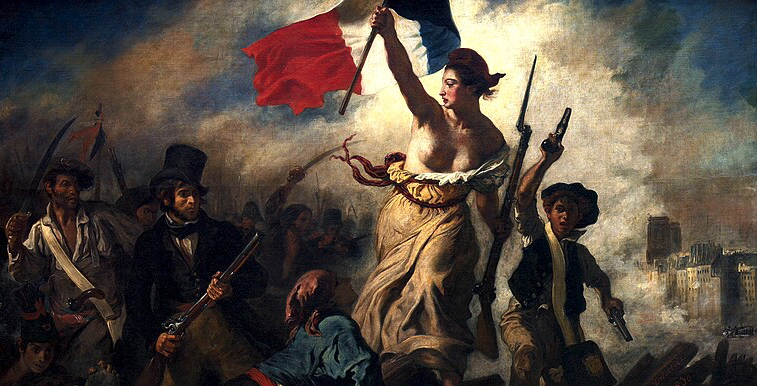In an epoch where information is more accessible than ever, encyclopedism—the pursuit and dissemination of comprehensive knowledge—holds undeniable power. Encyclopedism found its genesis centuries ago, but its modern understanding has lost its once superlative intent.
While one can enter the age of encyclopedism from several eras, I will be discussing the Encyclopédistes‘ movement of the French Revolution. Late 18th century France found herself the victim of molestation from various actors- one of which was the premise of misinformation. During the lead-up to the downfall of the monarchy, the Kingdom of France also found itself surrounded by grandiose ideas- some good, and some bad (such as those works of Maupeou.) Nonetheless, scholars of the French Writers’ Society found a way to catalog information in what we refer to today as an Encyclopedia.
William Doyle, in ‘The Oxford History of the French Revolution,’ notes: ‘Encyclopedism became a synonym for a refusal to accept anything uncritically.’ This point in the book stuck out to me as grandiose, and I decided that a personal memoir of such an attribute was in order. I have previously written on critical thinking (and the lack of it) in other posts- one of which can be found here.
Indeed the Encyclopédistes‘ movement ushered in the kind of content and reasoning that found little regard to religion as a manifestation of destiny. This was taboo in such times- as the Church claimed prestige above all. That isn’t to say that critical thinking cannot coexist with religion; rather, society should protect the institutions of objective reality above all else. Religion should play the role insofar as it is meant to. This is why democracies have adopted the separation of Church and state. In the United States, we are witnessing the collapse of objective truths insofar as rejecting what is factually correct for more fancied half-truths and even lies.
Insofar as to say ‘two things cannot be true at once’ is not the notion that I am describing; rather, and much as the Encyclopédistes‘ movement found, there has to be some instance of truth in which to base the material world around us. In summary, this is what the movement during the French Revolution found itself trying to achieve. Of course, personal bias can inject itself into even the most rigorous of texts- and this is where critical thinking enters stage left. Personal bias cannot help itself but shape the texts which the Encyclopédistes’ movement published. This is to no fault of the writers- as part of the human condition is the greatness of our minds to perceive the world around us. We simply cannot help ourselves.

The Duty to Protect Critical Thinking
When the Nazi Party rose to power, one of their hallmarks was the infamous book burnings that were held throughout the Third Reich. Perhaps of most significance were the words of the German-Jewish poet Heinrich Heine, who wrote in his 1820–1821 play Almansor: “Dort, wo man Bücher verbrennt, verbrennt man am Ende auch Menschen”: “Where they burn books, they will also ultimately burn people.”
Nazi Germany, like so many empires of past and present, disregard objective reality and critical thinking- the chasms that encyclopedism strives to prohibit. This is not to say we can simply link the two to mutual exclusivity, but there is something to be said about a society, much like the Third Reich, in which collapse is preceded by lies, misinformation, and withdrawal of reality. Those who strive to find and share empirical truth are also subject to the damnation from state and fanaticism. Many countries witnessed this during the COVID-19 pandemic.
Much like in the Third Reich and French Revolution (among thousands of examples in history,) the rapid advance and suddenness of the changing world around us leaves those unprepared in isolation. Left to the devices of social media, hearsay, and the cries of political banter- they find themselves in a vacuum that often lacks truth. Not surprising, then, is it that we cling to popular reality and ‘truths’ that are ushered by pundits everywhere. Insofar as the fracturing of objective truth can find its haven in movements like encyclopedism. Interestingly enough, even this movement couldn’t prevent the lead-up to the French Revolution. Of course, misinformation alone wasn’t the all-encompassing damnation in the Kingdom of France. No no, such an empire suffered from far more than the sweet and untrue words of the magistrates and King. But I will rest my case that downfall can and is often predicated on lies.
Who Decides Reality?
Deciding what constitutes objective reality versus fiction is a complex process shaped by human judgment, societal norms, and epistemological frameworks. If such an easy answer to my question exists, then perhaps the entire body of philosophy would cease to exist. And yet I feel a vestigial dismay towards pundits whose purpose is to undermine the framework that society has suffered so much to build. Can facts exist outside of human perception? Postmodernism challenges the notion of objective truth, arguing that facts are socially constructed. Perhaps a concrete answer to who decides fact versus fiction rests with social norms and values. Indeed, we choose to understand that a red light means stop and a green light means go (albeit some drivers are seemingly unaware of this…) While un-superlative my example still holds the realm that human consciousness and our eagerness to perceive the world around us help determine reality from fiction; however, this perception is often altered by misinformation and a lack of critical thinking.
The epistemological movement can help reinforce facts, but we should adopt a process to uphold the battle for progress and to always gain a deeper understanding of the world around us- even if it challenges our own biases and preconceived notions. I urge my readers to resist the temptation to take everything at face value. Indeed we must research empirical sets of facts to arrive at objective conclusions. Omitting to do such is how we have found ourselves in this archaic era. Thanks for reading!


Leave a Reply